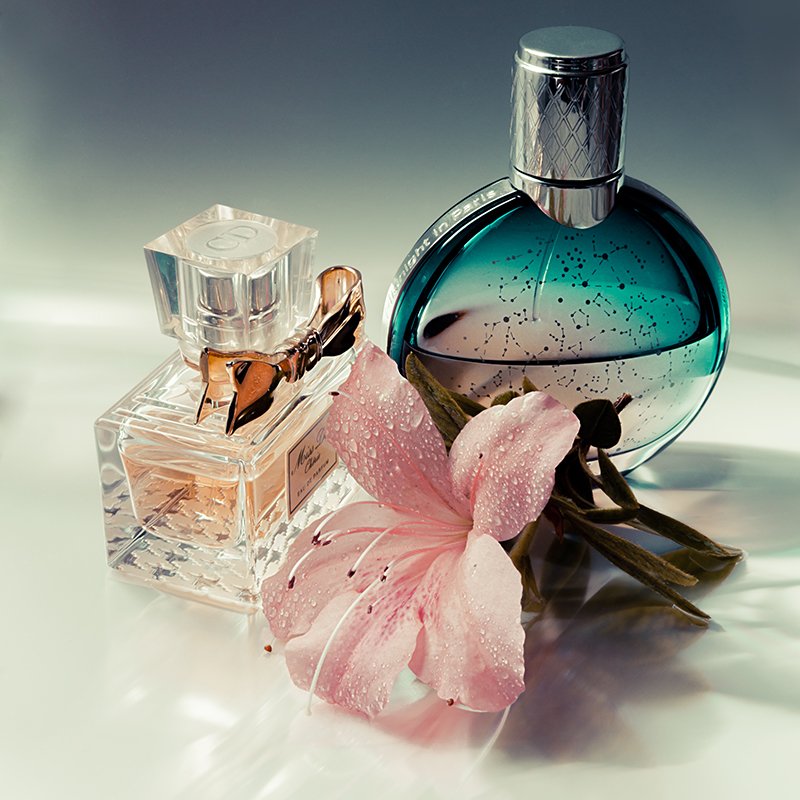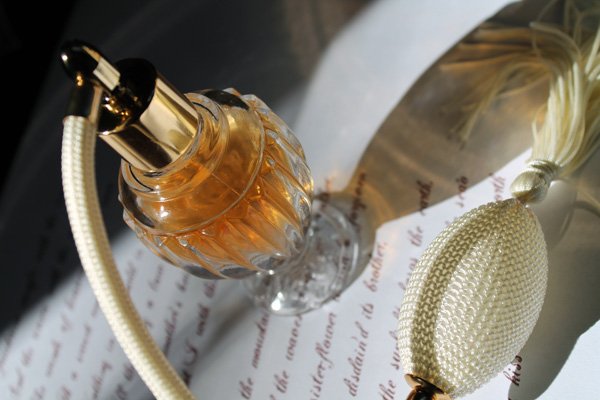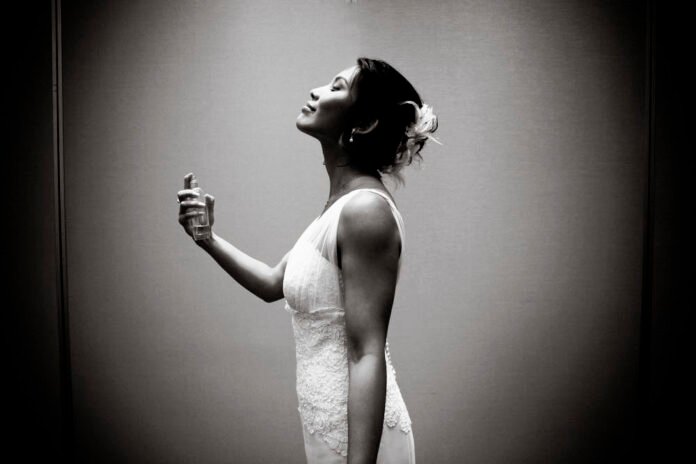If you are into aromatherapy, you’ll probably want to know how to make perfume with essential oils. Most modern perfumes are made of synthetic ingredients, but if you make your own perfume, then you know that it is completely natural.
Perfumes made from essential oils also have a therapeutic effect, so in addition to smelling good, homemade perfumes will make you relax, energize you, and even clear the respiratory system.
Essential oils help to achieve the balance of body, mind and spirit. When you smell something, olfactory receptors send a message to the limbic system. The limbic system is associated with instincts, moods and feelings. The physical and psycho-emotional impact of essential oil associated with the pleasure of smell and healing therapeutic properties, makes this perfume completely holistic experience.
it is really easy and fun to learn how to make perfume, creating your own, special fragrance. If you find it difficult to find a perfume that you like, or just want to have fun in experimenting with fragrances, try some of the recipes for perfumes that we listed below. You will be glad to “wear” your own creation.
Learning how to make perfume with essential oils has another advantage – it is a creative activity. In time you will learn to recognize the aroma and you will easily combine two or three essential oils whose synergy provides a pleasant scent.
How to make perfume
For making perfume you will need dark glass bottles and a spray pump (if you create a perfume based on alcohol or hydrolat).
Choosing the perfume base
- Perfume in vegetable oil
Perfume is made in vegetable oil if you want to make a non-alcoholic perfume – it is a good solution if your skin is sensitive or overly responsive to alcohol. It is recommended to use jojoba oil because it is very stable, and will not rancid quickly.
- Perfume in a mixture of alcohol and hydrolat
Hydrolat moderates the effect of alcohol (which can sometimes be irritating to the skin), and also provides interesting scent notes.
- Perfume in hydrolat
Hydrolat affects the skin mildly, nourishes it, and at the same time can enhance the smell of perfume.
- Perfume in alcohol
The classic perfume with the alcohol base. Instead of alcohol you can use vodka, which has a sufficient proportion of alcohol in it, while there is no excessive odor.
Concentration for perfume
Perfume → Aromatic composition comprising 15-30% of essential oils in 70-85% alcohol or hydrolat. The scent usually lasts for 4-8 hours.
20% perfume :
- 80 mL of water and / or alcohol and / or hydrolat
- 20 ml (about 400 drops) of essential oil
Water perfume → It contains between 8-15% of essential oils and the scent lasts for 3-6 hours.
10% water perfume :
- 90 ml of water and / or alcohol and / or hydrolat
- 10 ml (about 200 drops) of essential oil
Eau de toilette → The concentration of essential oils is between 4 -8%. It is cheaper to make but it evaporates faster. It is best to use it during the day.
5% EDT :
- 95ml of water and / or alcohol and / or hydrolat
- 5ml (about 100 drops) of essential oil
Perfume notes
You can try mixing different scents to create a unique fragrance, but first you should know the properties of each essential oil that you plan to use. You will know exactly what scents can be mixed when you learn how to make perfume.
When you first apply your perfume, that smell you currently feel will change with time. In fact, the essential oils in perfume evaporate in different time so our sense of smell can not recognize them all at once. Because of that there are three groups of essential oils:
Top notes
We can feel top notes of fragrance first. These refreshing scents do not last long because they evaporate quickly (1-2 hours). However, the top note is very important because it gives the first impression of smell perfume.
Essential oils used as top notes are: lemon, tangerine, orange, grapefruit, ginger, marjoram, bergamot, Roman chamomile, lemongrass, peppermint, neroli, basil …
Middle notes
Olfactory ingredients are not as volatile (may take several hours). Fragrance middle notes determine the scent of perfume – these are mild fragrances that are added in higher concentrations, they extend top notes scent. These are usually floral scents.
Essential oils used as middle notes are: jasmine, ylang-ylang, clary sage, rosewood, rose, geranium, lavender, palmarosa, thyme, pine …
Base notes
Base and middle notes give the main characteristics of the perfume. Base notes provide the identity and strength of the perfume. These are the scents that last the longest on the skin, and are usually described as “earthy” or “deep” scents. They help top and middle notes to be fixated, and that their scent lasts longer. The fragrance base notes are felt for hours, and in some cases days.
Oils you can use as a fixative: Balsam Peru, benzoin, cedar, myrrh, sandalwood, patchouli, vetiver … If you did not include any of these oils in the recipe, you can put a few drops of glycerin, which serves as a perfume fixative too.
Essential oils used as base notes are: vetiver, sandalwood, peace, cedar, patchouli, nutmeg…
Fragrance types
Take a look at the list with essential oils according to their dominant scent. When making perfume feel free to mix several different scents, such as fruit and floral, woody and citrus.
Earthy scents: patchouli, vetiver
Floral scents: geranium, jasmine, neroli, rose, ylang-ylang
Fruit aromas: bergamot, grapefruit, lemon, tangerine, orange, petitgrain bitter orange, petitgrain mandarin
Herbal scents: basil, Roman chamomile, clary sage, lavender, peppermint, rosemary
Spicy scents: cinnamon, ginger, juniper, nutmeg
Woody aromas: cedar, cypress, pine, sandalwood
How to make perfume – examples
Perfume
Base: 90ml alcohol
2 ml of sandalwood essential oil (base note)
1 ml of oil Atlas Cedar essential (base note)
2ml of geranium essential oil (middle note)
2ml rosewood essential oil (middle note)
1ml of clary sage essential oil (middle note)
1ml of lemon essential oil (top note)
Eau de toilette
Base: 10ml jojoba oil
5 drops of bergamot essential oil (top note)
5 drops of geranium essential oil (middle note)
6 drops of ylang-ylang essential oil (middle note)
3 drops of patchouli essential oil (base note)
1 drop of vetiver essential oil (base note)
Eau de toilette
Base: 80ml alcohol + 10ml lavander hydrasol
1 ml of grapefruit essential oil (top note)
1ml of mandarin essential oil (top note)
1 ml of lemon essential oil (top note)
2 ml of palmarosa essential oil (middle note)
1 ml of clary sage essential oil (middle note)
1 ml of Himalayan cedar essential oil (bas note)
 Image by: Oveja
Image by: OvejaHow to make perfume step by step
- Select base (alcohol, vegetable oil, hydrolat)
- Choose essential oils according to your taste, mood and notes
- Mix the base and essential oils in dark glass bottle. Optionally, you can add fixators (if you don’t already use oils that are inherently fixators in the perfume). At this point, your perfume is practically defined!
- Let your perfume sit for at least 15 days. Keep it in a cool, dark place
- Leave a perfume to “mature” for at least a month.
Now your perfume is finished and ready for use! You can also try making your own soap!
Note: Some oils such as lemon, grapefruit, lavender, etc. are phototoxic and perfumes made with these oils should not be used before sun exposure. Always check if the essential oil you use is phototoxic.
 Image by: Vetiver Aromatics
Image by: Vetiver AromaticsAt first i would advise you to learn how to make perfume based on a real recipe and then when you have tried that for a few times and figured out the scent of certain essential oils and what could be combined to smell good you can start making your own essential oil combinations. But always follow the top, middle and base note rule.
So, did you ever make your own perfume or eau de toilette at home? Or are you here because you want to learn how to make perfume? This is everything you need to know about it so get on it! And I would be glad to read your comments how these recipes worked out for you? They work great for me, I stopped buying expensive perfume long time ago and am not sorry for it.
















